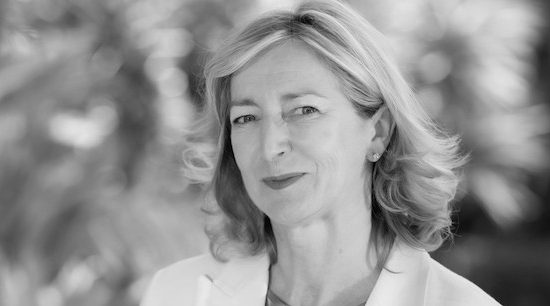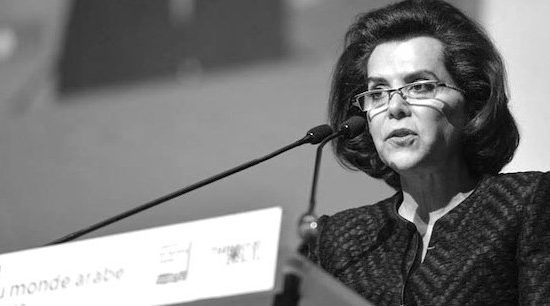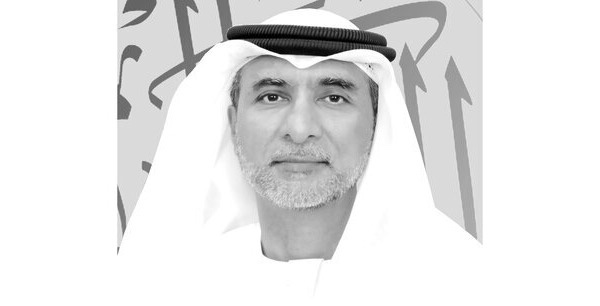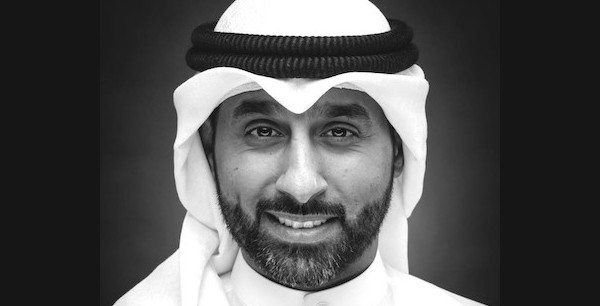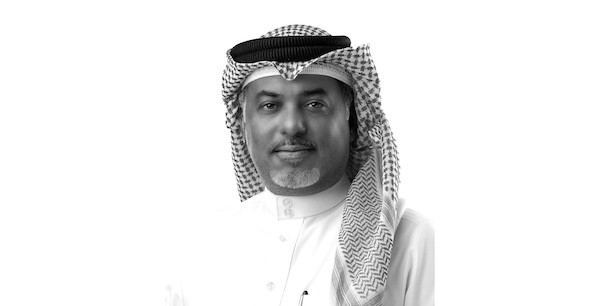
The world is changing at an incredible speed, often causing us to overlook the true values of business partnerships. Sharing profits and losses when investing in projects can be one way to address this.
In today’s rapidly evolving world, perhaps Sukuk holds the key to the change we need.
It’s my great pleasure to speak with Mr. Pietro Paolo Rampino , a visionary leader in Islamic finance and global business strategy. With expertise in Sharia-compliant finance and Sukuk.
Kinza: Pietro, what prompted the inception of your business, the initial steps you took, and the pivotal moments that defined your journey from the outset?
Pietro Paolo Rampino: I was born in Lecce, Italy, and worked my way through university in Milan while also holding down a job during the day. Despite financial challenges, I’ve always set high standards for myself, believing that striving for excellence is key to success. After completing my education, including a master’s degree, I sought opportunities abroad and eventually found myself in San Diego, where I was offered a position at a prominent law firm.
I declined the offer because I have no siblings, only my mother, and being far from her in the US was too much. So, I made the decision to return to Italy, following my instincts. Upon my return, I realised I was just one of many certified accountants. I knew I needed to stand out and be recognized for something unique; I didn’t want to blend in with the crowd.
My rationale was straightforward. Unlike China, where Italian entrepreneurs faced challenges such as factory replication and product copying, the UAE offered a different landscape. It was a wealthy country where the focus was on developing accounts rather than establishing factories or duplicating products. The trend of Italian businesses relocating to China resulted in replicated factories and cheaper products, ultimately leading to the closure of many Italian small and medium enterprises unable to compete.
,,Ultimately, my approach has been to anticipate and adapt to changing economic landscapes, seeking opportunities where long-term viability outweighs short-term gains.”
I firmly believe that being visionary means staying ahead of the curve, sometimes by five or ten years. However, being a pioneer requires fighting for your ideas and vision, even when others may not be ready to accept them. For instance, when Bill Gates and others introduced the concept of mobile phones being able to do everything, many dismissed it as crazy. Yet, history teaches us that visionary individuals must persevere despite scepticizm.”
Kinza: Did you transition from your role at the law firm in America to assisting companies in expanding into international markets upon returning to Italy?
Pietro Paolo Rampino: I began my career at Milan’s largest accounting firm, specializing in bankruptcy and corporate restructuring. Today, I serve as a trustee for Milan’s bankruptcy court and hold leadership positions in various Italian companies. With significant involvement in billion-dollar infrastructure projects and oversight roles in Italian motorways, I’ve amassed extensive experience in corporate restructuring, prioritizing employment protection in adverse business climates
I encourage students to envision their future selves and pursue personal and professional fulfillment in the years ahead.
Kinza: What subjects do you teach at school, and how do you approach educating your students?
Pietro Paolo Rampino: Islamic finance and conducting business in the MENA region are focal points of my role at the Luiss Business School and the owner is Confindustria (the Italian industrial association).
Misconceptions surrounding Islamic finance often stem from ignorance and a lack of exposure to accurate information. I advocate for a smart, humble approach over a silly, arrogant one, emphasizing the investment potential and economic significance of Islamic finance in global markets.
In Europe, particularly in the UK, there is a notable shift towards embracing Islamic finance. The UK’s autonomy from the European Central Bank expedites regulatory procedures, making it a hub for Islamic finance. Initiatives like promoting zakat during Ramadan highlight the growing integration of Islamic financial principles into normal life.
Collaborations between Islamic and Catholic finance sectors, exemplified by the partnership between the Pope and Bahrain, aim to dispel religious misconceptions and promote financial inclusivity.
The timeless principles of Sharia law and finance, such as equitable profit and loss sharing, foster sustainable growth and resilience in business ventures.
Kinza: What are your thoughts on the importance of Sukuk and the collaboration between Catholic and Islamic finance? Do you see Sukuk as the right and effective business approach?
Pietro Paolo Rampino: It’s not about religion; it’s a clear business strategy. Islamic finance serves as an alternative to conventional finance, open to everyone regardless of religious affiliation. Personally, as a Catholic who studied at a Catholic university, I have maintained an Islamic finance bank account in the UAE without any issues. It’s crucial to understand that Islamic finance adheres to Sharia principles, which prohibit certain activities such as guns, prostitution, gambling, pork, tobacco, and alcohol. However, with the ethical approach adopted by many Italian banks and institutions, the majority of businesses unknowingly comply with Sharia principles. You cannot use interest as assets. It’s forbidden. It’s called RIBA.
Kinza: What does that mean?
Pietro Paolo Rampino: It means that I cannot use money as assets. So I cannot get a loan; I cannot borrow. But I can engage in trading. I can use a markup or I can invest in tangible assets. The ethical approach of Islamic finance is based on profit and loss sharing.
Prophet Muhammad Peace Be Upon Him used to say, you cannot gain money without taking risks. So Islamic finance is considered more ethical because speculation is not allowed. It’s prohibited to engage in speculative activities like buying and selling in the stock market solely for profit.
Islamic finance emphasizes a real economy. Interestingly, the first countries to adopt Islamic finance were not Muslim-majority nations but rather England and the UK. They have established banks and infrastructure, partly due to their significant Muslim populations from countries such as Pakistan, India, and various Arab nations. It’s important to note that over 70% of Muslims worldwide are not of Arab descent. They come from diverse countries like Malaysia, Bosnia, Albania, Russia, and Indonesia. This highlights a common misconception about Islamic finance.
Kinza: Respect is key in business, right?
Pietro Paolo Rampino: I believe reputation is paramount—it’s our most valuable asset. To build trust and cooperation, I initiated conversations, showed reliability, and consistently delivered on promises. Trust is earned through actions, and prioritizing integrity paved the way for successful collaborations in the GCC.
Understanding a country’s culture, like Italy’s, requires immersion beyond major cities. That’s why I penned a book on Saudi Arabia—to grasp its past, present, and future.
I’ve taught about Prophet Muhammad Peace Be Upon Him to shed light on Islamic finance principles, showcasing the importance of respecting diverse cultures and beliefs.
I’m working on Home Sukuk because I believe it can finance numerous infrastructure, ESG, green, and renewable energy projects globally, including in your country. However, raising awareness about this opportunity is crucial. I’m collaborating with Italian authorities and banks, but the major obstacle is arrogance and blindness among people, right?
In my experience living between Italy and the GCC for 20 years, I’ve met Crown Princes and Kings, all of whom were remarkably humble despite their power. They were genuinely interested in understanding others. I recall attending the Gulf Investment Forum, where even the Crown Prince wore a badge like everyone else, emphasizing teamwork.
,,It’s about having the right approach—always humble and smart in everything you do. That’s the lesson we should impart to the next generation.”
In my quest to aid my country’s development, I’ve encountered obstacles caused by nepotism. I advocate for a merit-based approach, prioritizing competence over personal connections. This philosophy, though challenging, promises greater efficacy in the future. Similarly, in the GCC, individual countries prioritize their interests under monarchical rule, hindering collective progress. Amidst these challenges, I propose circular investment as a solution for sustainable economic growth.
Kinza: What are the implications or significance of this approach?
Pietro Paolo Rampino: Circular investment means strategically investing in key industries or companies to address a country’s needs. Instead of focusing only on profitable brands, countries like Saudi Arabia could invest in companies vital for their nation’s requirements, reducing dependence on imports and controlling market prices. For example, Qatar’s investment in cattle farms abroad secures a stable meat supply. Similarly, Italy could benefit by investing in domestic manufacturing, promoting technology transfer and ensuring food security.
Kinza: How can countries navigate the challenge of technological advancement’s impact on job creation while ensuring long-term strategies for societal stability and sustainable development?
Pietro Paolo Rampino: Technological advancements like artificial intelligence are replacing jobs faster than new ones are being created, potentially leading to the decline of the middle class worldwide. As populations grow, the demand for work remains, but the ability to provide
sufficient jobs diminishes. This could result in societal divisions, with the wealthy retreating into gated communities, indifferent to global issues. In contrast, countries like the United Arab Emirates (UAE) have long-term visions and strategies for their future, focusing on bridging present actions with future goals.
,,However, democratic countries like Italy often lack such visionary strategies due to short-term political motives. Without cohesive industrial policies or long-term visions, countries risk stagnation. The need of the hour, therefore, is to shift focus from personal needs to global needs and adopt visionary strategies for a sustainable future.”


